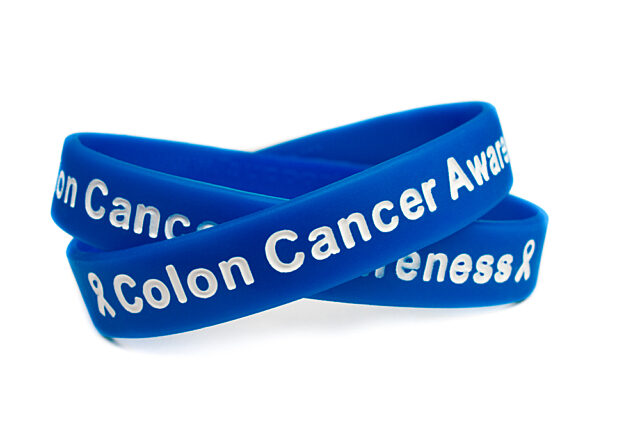All things blue: Protecting yourself from colorectal cancer

March is National Colorectal Cancer Awareness Month — which means it’s time to raise awareness of colorectal cancer and the importance of regular screenings. With regular screenings, colorectal cancer is both preventable and highly survivable.
“Given the large number of people affected by colorectal cancer, which is the second leading cause of cancer deaths, and that it is preventable for most, this month gives us the chance to raise awareness and cut through some of the misperceptions and anxiety about screening tests and focus on keeping people healthy,” said Thomas J. George Jr., M.D., FACP, director of UF Health gastrointestinal oncology program.
Are you ready to schedule a colonoscopy?
Approximately 140,000 Americans are diagnosed every year with colorectal cancer. If you are an employee of UF Health, jump on the FasTrack to get your hassle-free colonoscopy scheduled. Simply visit the FasTrak page and complete the brief online form.
“We are encouraging FasTrak for all UF Health staff who are 50 and older to assist them with getting scheduled for a colonoscopy screening. Get your rear in gear and schedule today,” said Jennifer West, R.N., a nurse navigator for the UF Health Gastrointestinal Oncology Center.
For all other patients looking to schedule a colonoscopy, it is best to speak with your primary care physician to discuss getting a referral for a gastroenterologist.
Colorectal cancer FAQ
What is colorectal cancer?
Colorectal cancer, or colon cancer, occurs in the colon or the rectum. The colon is the large intestine. The rectum is the passageway that connects the colon to the anus.
Who gets colorectal cancer?
• Both men and women are at risk. • It is most often found in people aged 50 and older. • The risk of developing the disease increases with age.
Are you at high risk?
Your risk for colorectal cancer may be higher than average if: • You or a close relative have had colorectal polyps or colorectal cancer. • You have inflammatory bowel disease. • You have a genetic syndrome such as familial adenomatous polyposis (FAP) or hereditary nonpolyposis colorectal cancer.
Does colectoral cancer always have symptoms?
Precancerous polyps and early-stage colorectal cancer doesn’t always have symptoms, especially at first. This means that someone could have polyps or colorectal cancer and not know it. That is why having a screening is so important.
How effective are screenings?
If you’re 50 or older, getting a colorectal cancer screening test could save your life. Here’s how: • Colorectal cancer usually starts from polyps, or growths in the lining of the colon or rectum. Most polyps are harmless, but over time they can develop into cancer. • Screening tests can find polyps so they can be removed before they turn into cancer. • Screening tests can help detect colorectal cancer early. When it is found early, the chance of being cured is good.
Learn more about colorectal cancer and colonoscopy screenings at the UF Health GI Oncology Center website.